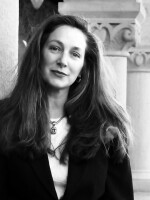STEVEN INSKEEP, host:
Talk of war in South America has faded as quickly as it flared. Colombian troops crossed into Ecuador to hunt down rebels ten days ago, and that triggered regional tensions. Trade has now resumed, though, along the Colombian/Venezuelan border. President Hugo Chavez has withdrawn troops that he dispatched to the frontier in a three-country dispute.
Venezuelans welcomed the peaceful resolution, but there's a sense that the peace won't last long either. NPR's Julie McCarthy reports from Caracas.
(Soundbite of children playing)
JULIE MCCARTHY: In the space of a week, Venezuelans went from worry about possible war to resuming their routines. With Venezuela, Ecuador and Colombia reaching a peaceful if uneasy resolution, families filled the parks and children took up their gravity-defying tricks on jungle gyms.
Many here extolled the military and diplomatic gymnastics of President Chavez, who managed to reduce tensions as quickly as he'd raised them. They appreciate his massing of troops along the Colombian border, calling it nothing more than a defense of national sovereignty after Colombia violated Ecuador's.
Twenty-one-year-old law student Omar Antonio Rodriguez says it was not the provocation the U.S. saw.
Mr. OMAR ANTONIO RODRIGUEZ (Law Student): (Through translator) I think moving the troops to the border as more a preventative measure. I don't ever think Chavez was going to move into Colombia. And I think that that was the main reason behind it.
MCCARTHY: As leaders finessed a solution to the diplomatic row, Colombian President Alvaro Uribe said he would discontinue attempts to bring charges that President Chavez bankrolled Colombia's Marxist FARC rebels with millions of dollars. Documents discovered in computers seized at the rebel camp that Colombia attacked purport to show that Chavez has forged a strategic alliance with FARC guerillas.
As he watched his two small girls, however, telecommunications specialist Jorge Lagos expressed a skepticism widely voiced here about the authenticity of the evidence.
Mr. JORGE LAGOS (Resident, Venezuela): (Foreign language spoken)
MCCARTHY: Firstly, Lagos says, we need to see if these documents are real. There was a bombing where they apparently found the computers and I think it's impossible that they were still intact. I work with computers, he says, and I know they're very fragile.
Strolling through the park with his brother Freddie, Jacob Mandalovich(ph) says he wouldn't be surprised if Chavez was financing FARC.
Mr. JACOB MANDALOVICH: He has money to give everybody, not to the poor here, but outside Venezuela. And with a barrel of oil now more than $100, he can spend lavishly.
MCCARTHY: Brothers Freddie and Jacob Mandalovich expect to see more heated diplomatic exchanges between the left-leading Chavez and the right-leading Uribe before too long.
Mr. MANDALOVICH: We are rather very worried about that. There will be other events coming soon, so we have to wait to see what will be the outcome of that.
MCCARTHY: That must be very alarming. I mean, that must be very unsettling.
Mr. MANDALOVICH: We're used to that. And it's not the first time that there is a fight between Chavez and Uribe. I think that in three or four weeks more you will see again the same move.
MCCARTHY: Fernando Ochoa, the former defense minister at the time of the 1992 coup attempt led by Hugo Chavez, says he too anticipates new flare-ups. And he blames Chavez for inflaming tension this time with what he says was a reckless deployment of troops to the border.
Mr. FERNANDO OCHOA (Former Defense Minister, Venezuela): (Spanish spoken)
MCCARTHY: Without a doubt Chavez is responsible, Ochoa says. Because although nothing happened, by sending soldiers to the border, he says, there was a risk of a serious military confrontation.
(Soundbite of music)
MCCARTHY: It was reconciliation, like these Venezuelan student crossing the border to embrace their Colombian counterparts, that Ochoa says may have helped sober the leaders, that and the cultural ties in cross-border trade that tightly bind Venezuela and Colombia.
Again, Fernando Ochoa.
Minister OCHOA: (Spanish spoken)
MCCARTHY: Waving this flag of war between our peoples was viewed badly, he says. Chavez and Uribe understood that at the bottom of it no one really wanted this kind of conflict and that everyone would lose, Ochoa says.
Even Chavez critics like Ochoa say despite all the brinkmanship, in the end the Venezuelan president acted responsibly to avert conflict. But for former diplomat and international relations Professor Demetrio Bozner(ph) the true lesson the dispute is the danger of having what he calls irresponsible people in power.
Professor DEMETRIO BOZNER: What really one should try to get away from is demagogic populism, such as we have at the present time in Venezuela. And how important it would be to elect reasonable moderates, regardless of whether they're right of center or left of center.
MCCARTHY: With five years left in President Chavez's term, moderation as Bozner sees it may be a ways off.
Julie McCarthy, NPR News, Caracas. Transcript provided by NPR, Copyright NPR.






